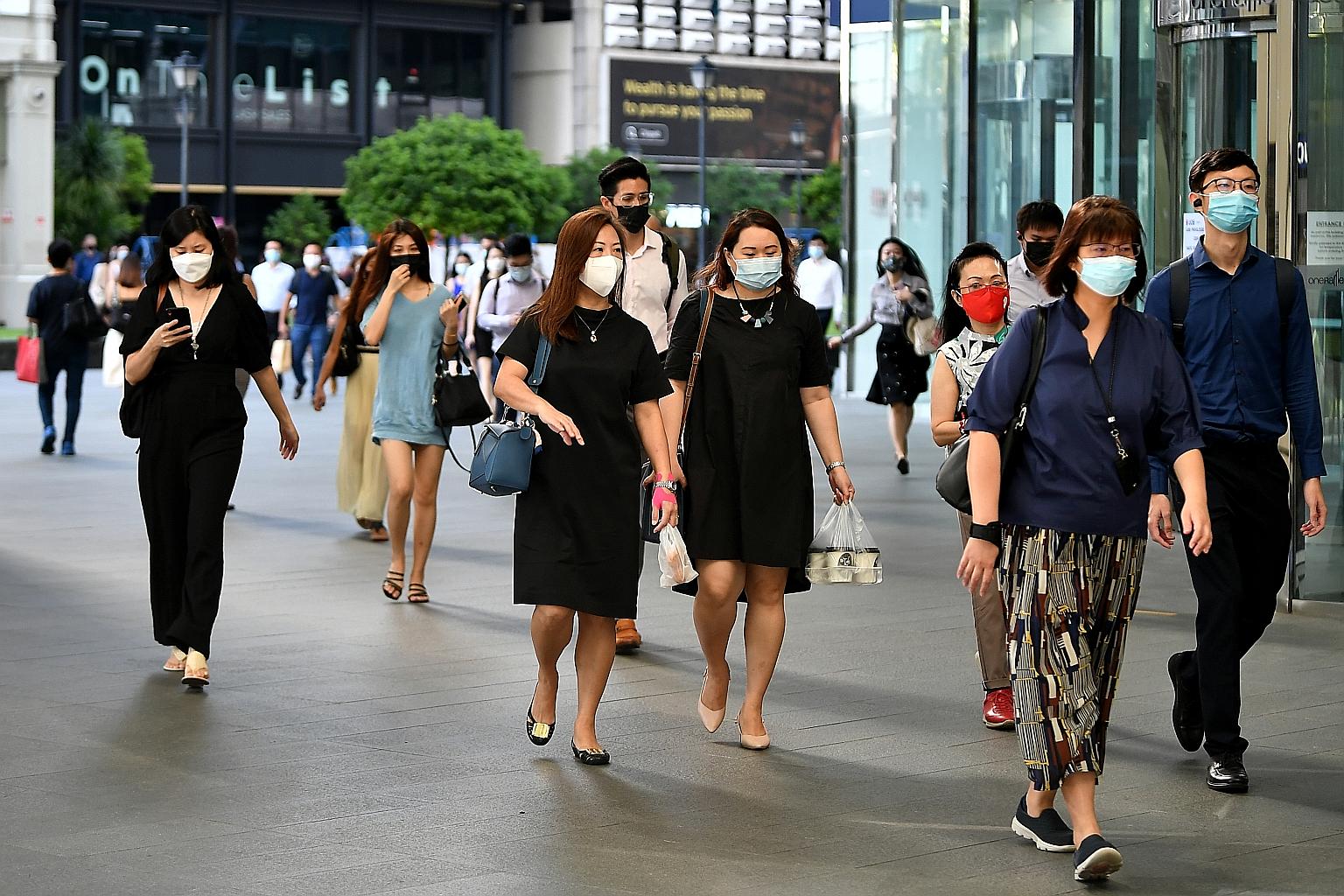Aware calls for enhanced laws on workplace discrimination, harassment
This is among policy recommendations raised in discussions with 191 residents
Sign up now: Get ST's newsletters delivered to your inbox

During the discussions held by Aware, participants recommended having anti-discrimination legislation, with protection for mothers returning from maternity leave, and mandatory training for employers and employees, among other things. ST PHOTO: LIM YAOHUI
Follow topic:
Gender advocacy group Association of Women for Action and Research (Aware) has called for laws on workplace discrimination and harassment to be enhanced, and for watchdogs to get more powers to deal with the challenges faced by women.
It also called for a national code of conduct across institutes of higher learning and a clear protocol of support and resources for victims of sexual harassment.
Yesterday, the group released a series of policy wish lists stemming from discussions with 191 residents here about the changes they most want Singapore policymakers to enact.
The residents - who included single parents, migrant spouses, teachers, students, parents and individuals who have faced workplace discrimination - took part in 29 community discussions held by Aware between March and May.
Among the policy changes some recommended were national legislation on workplace harassment and updating the websites of the Tripartite Alliance for Fair and Progressive Employment Practices (Tafep) and the Tripartite Alliance for Dispute Management to clarify actions people can take in cases of bullying.
The initiative - dubbed Reimagining Equality - coincides with the Government's White Paper on improving gender equality this year.
Victims of workplace discrimination said there was a lack of comprehensive legal protections for employees facing discrimination and a lack of awareness about internal reporting processes. They also felt that Tafep had insufficient enforcement powers and confidentiality measures.
They suggested introducing anti-discrimination legislation, with protection for mothers returning from maternity leave, and mandatory training for employers and employees.
Issues raised by students from higher institutes were the lack of standardised protocols for dealing with campus sexual harassment; policies, processes and staff behaviour that were not victim-centric; and the re-traumatising effect of institutions making police reports without victims' consent.
Aware also recommended training for students and staff, and clarification on the "reasonable grounds" for exemption from the legal obligation to report cases.
Single parents raised the issue of limited housing options and needs assessments that underestimate housing expenses. Divorced parents reported having to apply many times over for maintenance to be enforced, while unwed parents worried that their children, deemed illegitimate, were not eligible for intestate inheritance.
This group recommended allowing single parents the same housing and grant options as married applicants, and establishing a child support agency to manage maintenance payments.
Migrant spouses who took part in the discussions raised concerns about separation from their Singaporean children, limited work options and the inability to co-own homes. They recommended simplifying access to permanent residency.
Male advocates of gender equality and those looking into sexuality education were the other two groups involved in the discussions.
Men raised issues of gendered laws like paternity leave, rigid ideas of masculinity during national service as well as the stigma and stereotypes accompanying portrayals of gender and sexual orientation in the media.
Those discussing sexuality education in schools said there was an inadequate focus on consent and gender-based violence in the mainstream curriculum and lack of engagement from students.
They also raised the issue of victim blaming perpetuated by teachers and feelings of exclusion from the lesbian, gay, bisexual, transgender and queer community during sexual education classes.
They recommended teaching about consent and gender-based violence, adopting a fact-based approach, and fostering respect for different sexual orientations, gender identities and family structures.
Aware president Margaret Thomas said: "We are glad that Aware could serve as a vessel for these individuals, amplifying their concerns to the national stage."
Aware said it will submit a comprehensive "omnibus report" of recommendations, based on its research and advocacy positions, to the Government later this month.

